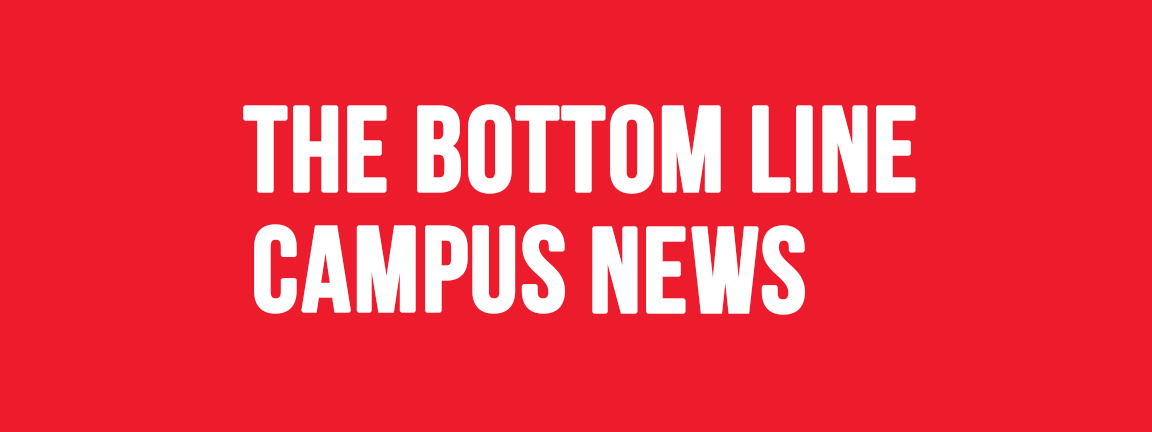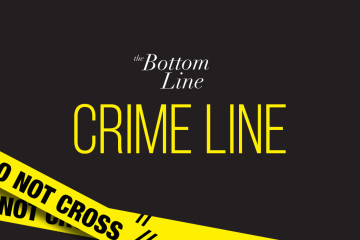Frostburg Community Coalition Receives Additional Grant Money to Fight Substance Abuse
Frostburg State University has collaborated with the Frostburg Community Coalition to increase a grant regarding underage drinking in the area. The grant, formally called the “Drug-Free Communities Grant” will provide an additional 625,000 dollars to support the movement.
These funds, according to the statement released with the university, will be combined with the university’s contribution which will total 1.25 million dollars to fight against substance abuse. The grant is directed by the “Office of National Drug Control Policy” which is partnering with the “Substance Abuse and Mental Health Services Administration” the program offers a variation of funds to community coalitions for a period of five years in order to help the effort of stopping and preventing adolescent drug and alcohol abuse.
The statement released by the university discusses the basis of the Frostburg Community Coalition which was created in 2011. There was a grant called the Maryland Strategic Prevention Framework which increased their funds from 75,000 to 251,000. The first grant was given through the Allegany County Health Department.
The community coalition has chosen representatives for their program from the university itself, the Mountain Ridge High school parents and students, as well as college students in the area. They have also included according to the document released by the university, several business owners, and government officials, residents of the area, law enforcement officials and property managers. All of the members work to “find collaborative solutions” to the problems of substance abuse. The coalition has over 40 members.
This expansion of funding has also been beneficial to middle schools in the area; Westmar and Mount Savage middle schools, as well as the communities nearing them have become “an area of focus.” Research suggests that underage drinking starts in this stage of adolescence, much before high school and college. Marijuana use will also be zeroed in on.
Veronica Williams, a senior and criminal justice major was extremely impressed by the grant. I think the grant is a great because it’s going towards education which I always think is a good thing,” she said. “Young kids and even students here who grow up around substance abuse or are influenced to participate in substance abuse need to get educated on it before they get caught up in it, or find a way to get out of it.”
Shalaan Powell, a mass communications major also favored the grant. “I think the program is really good if it helps youth stay away from substance abuse, because at that age, kids are getting curious and wanting to experiment with those types of things,” he said. “I think if people have an outlet to substitute for their curiosity like art, anything that is useful to society I think the program is great, so they can keep their minds off of experimenting with various drugs.”
Veronica Williams also had a project for one of her classes that talked about substance abuse. “My project was basically a PowerPoint of a fictional story of a person who engaged in drug abuse and alcohol use. I told a story of how her life revolved around drugs and how that ultimately led to her being placed in prison,” she said. Selling drugs was all she knew, she used them and sold them. When she finally got out of jail she went right back to selling and using drugs and she ultimately ended up dying because of it.” Veronica says that the moral of the story is to not make drugs a priority in life. “If drugs are all you know, try to stir away from them and find something positive to do with your life.”
Dr. Jonathan Gibralter, the president of Frostburg State University had a lot of positive things to say about the coalition. “The broad-based, research-supported approaches employed by the Frostburg Community Coalition have helped our community make great strides in keeping our young people safe from the harms of early substance abuse,” he says in the statement issued. “High-risk drinking all too frequently begins in high school or earlier, and this extremely competitive grant will provide significant resources to stem this trend at its source.”
The coalition will also focus in on “unruly parties” on college campuses. The increased funding allows a strategy called “Knock-and-talks.” Police will have the ability to visit houses in the early hours of the day that may become parties and remind them of underage drinking laws and noise violations, and also offer an “anonymous tip line” for parents or students who suspect underage drinking at parties in the area.
Both Shalaan Powell and Veronica Williams were on the fence about this strategy. Williams said, “I’m on the fence about the knock-and-talk. It’s good that they are knocking on doors and taking it upon themselves to see if anybody who is under the age and engaging in alcoholism and substance abuse. At the same time, I feel as though they should make sure that they do it in a way that has controlled enforcement, and they aren’t intimidating it’s a good idea.”
Shalaan Powell said “It is a person’s right to do whatever they want in the privacy of their own home. At the same time if they need to be warned, it’s good because that could help them in the long run because it’s them giving a heads up. It’s also the responsibility of the people hosting the event they need to be considerate of their community and environment so an officer does not have to come in and intervene.”
The funding also will support the increasing of “responsible beverage service” training for employees in drinking establishments, who have signed the “FCC Cooperating Alcohol Agreement.”
In the statement by the university Michael Botticelli, the acting director of the Office of National Drug Control Policy made a extremely positive quote on the coalition efforts. He says, “I congratulate prevention advocates for their continuing hard work and dedication to young people, many of whom are struggling with peer pressure and other challenges in today’s society.”
For more information on the Frostburg Community Coalition, contact coordinator Lyndsey Baker at 301-687-4892 or lkbaker@frostburg.edu. For more information on the Frostburg Community Coalition, contact coordinator Lyndsey Baker at 301-687-4892 or lkbaker@frostburg.edu. For more information on the Frostburg Community Coalition, contact coordinator Lyndsey Baker at 301-687-4892 or lkbaker@frostburg.edu. For more information on the Frostburg Community Coalition, contact coordinator Lyndsey Baker at 301-687-4892 or lkbaker@frostburg.edu.





1 Comment